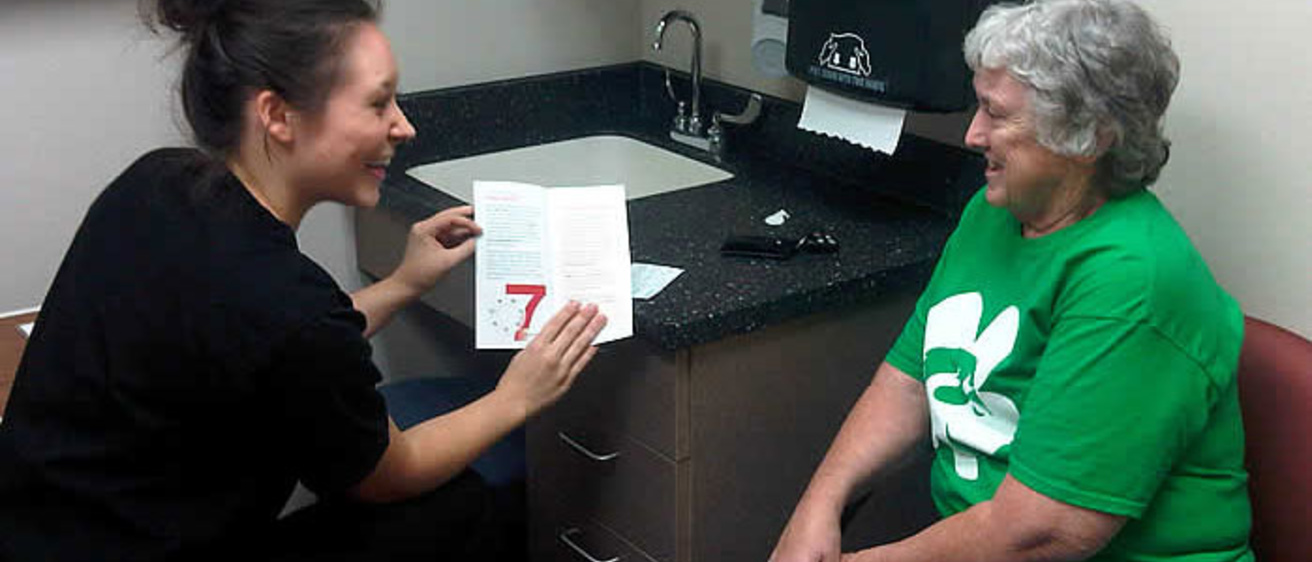Located at University of Iowa Hospitals and Clinics, the 20,000-square-foot Nursing Clinical Education Center (NCEC) lets students learn sophisticated and complex nursing care using patient simulators of all makes and models.
NCEC "patients" are very compliant and are highly valuable to hands-on clinical learning, but communication and open dialog tend to be a bit one-sided. So, about a year ago, the lab course design team decided to boost the NCEC experience by adding a new type of simulated skills activity.
The new program helps students to teach patients specific information, adding a human element that no simulator can provide. It relies on community volunteers who lend their time and feedback.
The program is a collaboration with Joan Cook of Elder Services, Inc. (ESI). Cook is director of ESI’s Retired and Senior Volunteer Program (RSVP)—a place where adults age 55 or older can make an impact on their community through volunteer work.
RSVP volunteers routinely play the role of patients for UI students in the Carver College of Medicine and the College of Pharmacy. Two years ago, the College of Nursing joined the program, drawing on volunteers who play patients over two one-week sessions.
“The goal of this partnership was to provide opportunities to enhance communication for an evolving patient-centered system,” Cook says. “The students needed to practice skills in obtaining health history information, performing noninvasive health assessment skills and providing health education.”
This year, coinciding with National Volunteer Week (April 6-12), 64 RSVP volunteers again are paired with students to complete a relevant health assessment. Each volunteer will provide the student feedback on the interaction.
Even though the partnership is still in its infancy, Cook considers this College of Nursing/RSVP collaboration at NCEC a great success. And she has statistical evidence to prove it. According to an outcome survey of the students who participated in 2013:
- 98 percent agreed or strongly agreed that their knowledge of older adults’ health needs increased due to this experience.
- 95 percent said their comfort level in working with older adults had improved.
- 94 percent agreed that their interviewing skills had improved.
- 94 percent said they would recommend this experience for students in the future.
“Most undergraduate nursing students are under 25 years old and healthy. They learn equipment operation well but have little opportunity to practice history, assessment, or health education skills on a person who has more life experience or health history,” Cook says.
“The intergenerational experience helps nursing students gain confidence in communicating with clients while dispelling some myths about older adults.”
Elder Services, Inc. provides programs, services, and resources to assist persons age 60 and over in Johnson county and east central Iowa to stay active, independent, and safe in their own homes.
